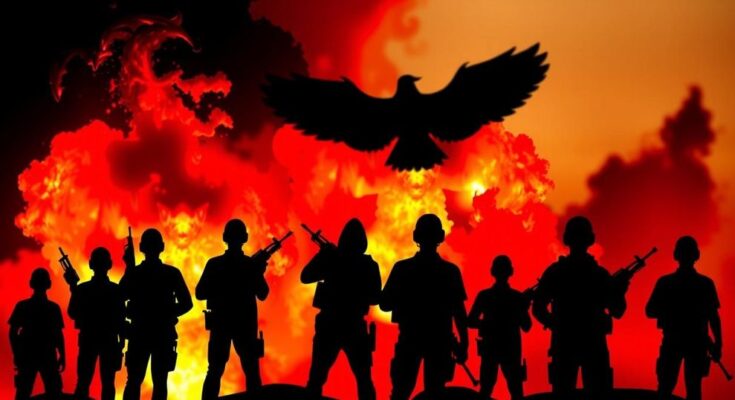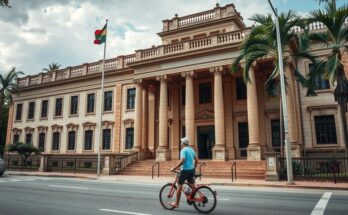Dominican President Luis Abinader warned of potential drastic measures to protect national security if a U.N.-backed anti-gang mission in Haiti fails. He highlighted the critical role of international forces, the impact of gang violence on both Haiti and the Dominican Republic, and the need for elections in Haiti, emphasizing that the current mission is severely under-resourced, endangering regional stability.
The President of the Dominican Republic, Luis Abinader, expressed significant concerns regarding the ongoing security situation in Haiti, emphasizing the urgency of a U.N.-backed mission to combat rampant gang violence. During his address at the U.N. General Assembly, he threatened to enact “drastic measures” should the international effort prove ineffective. Haiti faces an escalating crisis, with gangs controlling approximately 80% of Port-au-Prince since the assassination of President Jovenel Moïse in July 2021. This alarming situation has resulted in extensive homelessness and an influx of Haitian refugees into the Dominican Republic. Abinader commended the contributions of Kenyan forces, who lead the mission with a contingent of nearly 400 police officers, alongside support from Jamaica and Belize. However, he highlighted a substantial resource deficit, as current deployments fall far short of the 2,500 personnel promised for comprehensive stabilization efforts. He underscored that for Haiti to conduct free and transparent elections—last held in 2016—effective security measures must be in place by the stipulated deadline of February 2026. Citing the gravity of the situation, Abinader noted that coordinated attacks by gangs against government infrastructure have created instability that threatens both Haiti and the Dominican Republic’s security. He stated that the Dominican Republic has already faced significant strain from this crisis, providing humanitarian aid that far exceeds expectations. Abinader also pointed out the demographic impact of the crisis, revealing that a significant portion of medical services and educational systems in the Dominican Republic is comprised of Haitian nationals. Despite international scrutiny regarding human rights violations against Haitians by his administration, Abinader firmly rejected these allegations while affirming the country’s commitment to human rights. He also remarked on the socio-economic improvements within the Dominican Republic, noting that the national poverty rate has reached a historic low. As the global community continues to monitor the evolving circumstances in Haiti, the Dominican government stands ready to respond, reiterated by the impending address from Haiti’s transitional leadership at the U.N. General Assembly.
The ongoing violence in Haiti has its roots in political instability, particularly following the assassination of President Jovenel Moïse in mid-2021. In the absence of a functioning governmental authority, gangs have exploited the situation, claiming control over large areas, thus exacerbating the humanitarian crisis. The Dominican Republic, sharing the island of Hispaniola with Haiti, has been significantly affected, with an influx of Haitian migrants and refugees increasing pressure on its social services and security systems. The international community, led by the United Nations, is attempting to stabilize Haiti through a proposed mission; however, resource shortfalls and logistical challenges threaten the efficacy of these efforts.
In summary, President Luis Abinader’s address at the U.N. underscored the urgency of stabilizing Haiti in the face of escalating gang violence and the critical role a U.N.-backed mission plays in addressing the humanitarian crisis. His warning of potential drastic measures reflects the Dominican Republic’s deep-seated concerns for national security, particularly as instability in Haiti poses a direct threat. While Abinader reiterated the Dominican commitment to human rights, ongoing scrutiny of the government’s actions illustrates the complexities of managing immigration and humanitarian obligations amid such a crisis.
Original Source: apnews.com


